Call Now Open
2026 Oxford-Harrington Rare Disease Scholar Award
Four Medicines in Clinical Trials and More in the Pipeline
When it came to vaccines being trialed to prevent COVID-19, University Hospitals was already at the national forefront of innovations advancing COVID-19 treatments in mid-2020.
Now four Scholars at Harrington Discovery Institute at University Hospitals might well be leading the charge in new ways of preventing and treating COVID-19.
They are a team of health care heroes, and the work they are doing is exactly why Harrington Discovery Institute was created nearly 10 years ago in partnership with UH. Our missions are aligned and support each other: To Heal. To Teach. To Discover.
In 2020, during the early months of the pandemic, Harrington Discovery Institute put a message out to scientists around the world, asking them for their ideas on how to fight the coronavirus – seeking innovative, breakthrough science.
As Harrington Discovery Institute’s founder and president Dr. Jonathan Stamler put it, “As we develop breakthrough treatments for patients, we need to raise as much support as possible from our local Cleveland community and across the nation,” he said. “This is an opportunity to restore human health and the world’s economic well-being.”
About 300 scientists and researchers responded with applications, seeking the funding and expertise offered. The leaders of Harrington Discovery Institute chose the 12 scholars whose applications they thought had the highest likelihood of clinical success. Each scholar was provided with a team comprised of a lead drug development advisor (former pharma leader with experience bringing drugs to market), business development advisor and project manager from Harrington’s Therapeutic Development Center.
“Harrington Discovery Institute does what others can’t. We find the best science and fuel it with funding and critical expert guidance to accelerate the process of creating medicines and finding cures. We don’t do it alone. We accomplish such achievements with the help of our community, including University Hospital Caregivers, who support our mission and our work to impact the standard of care,” says Dr. Stamler.
Four of those 12 scholars’ innovations have already progressed to the stage of clinical trials.
You likely know that monoclonal antibodies are already part of the treatment for patients with COVID-19 who are a higher risk of serious complications because of an underlying condition. Now there may be a next-generation monoclonal antibody therapy resulting from discovery and development with Harrington Scholar Dr. Michel Nussenzweig, MD, PhD, from The Rockefeller University. Preclinical data suggest that, even at low concentrations, this antibody treatment minimizes the risk of the virus mutating and developing resistance to the therapy. Remarkably, this improved antibody has already been licensed to Bristol Myers Squibb and is readying for phase three clinical trials.
Dr. Stamler describes the souped-up antibody as offering longer and more powerful protection against variants. “While progress made with vaccines has been truly remarkable, it will need to be complemented by creative antiviral approaches if we are to avert this and future pandemics,” said Dr. Stamler.
A second innovation that is also in clinical trials is by Harrington Scholar Dr. Joseph Vinetz, MD, of Yale University - a treatment for patients in the early days of a COVID-19 infection. It uses the anti-viral clinical effects of camostate mesylate, an existing drug known for its anti-inflammatory and potential antiviral qualities. It was found to limit symptoms in an outpatient population of COVID-19 patients in New Haven, CT, including preventing the loss of smell or taste.
Third, a novel respiratory treatment, being led by Harrington Scholar Dr. James V. Reynolds, PhD, UH / CWRU, would be the first multi-purpose drug to improve lung and heart function in COVID-19 patients, so that their bodies can get the necessary amount of oxygen. This drug enhances tissue oxydenation, which combats many of the pathological impacs of COVID-19.
A fourth innovation in phase 1 testing of clinical trials is by Harrington Scholar Dr. Michael A. Barry, PhD, of Mayo Clinic, and is a new type of vaccine called a "single-cycle adenovirus" vaccine developed specifically for intranasal immunization. SARS-CoV-2 enters the body in the nose and lungs. Despite this, most vaccines are injected into the muscle and miss the opportunity to generate a robust barrier of protection at the site of entry.
This "single-cycle adenovirus" vaccine is engineered to be substantially stronger than most of the vaccines currently being developed in that it can produce up to 100 times more viral proteins for the immune system to detect and provokes significantly stronger immune responses than most other vaccines.
Those are four medicines currently in clinical trials that were developed over the last year, and there are others in the portfolio that are advancing closer to clinical trials.
One such drug is a once-a-day, self-administered nasal spray that offers 100 percent protection for at least 24 hours against catching COVID-19. It’s being developed by Harrington Scholar Dr. Anne Moscona, MD, at Columbia University.
Let us remember that it can take up to 10 years to move a discovery into a clinical trial. Yet each scholar has noted that the infusion of funds and expert assistance from Harrington Discovery Institute has quickly propelled their work forward.
As Dr. Stamler says, these are just a few examples of what could be next in the fight against COVID-19 or future viruses. “The virus may never disappear, but our tools for battle are getting stronger every day,” he says.
That’s exactly right. And Harrington Discovery Institute and UH will continue to lead the way.
To learn more about these breakthrough discoveries, watch our 'Inside the Innovations Advancing COVID-19 Treatments' webinar.
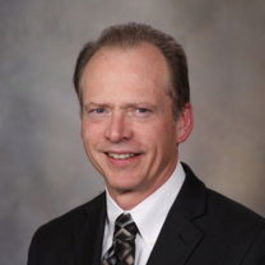
Infectious Disease
Mayo Clinic
Harrington Award for Coronavirus
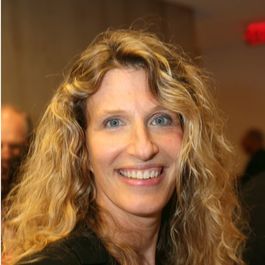
Virology
Columbia University
Harrington Award for Coronavirus
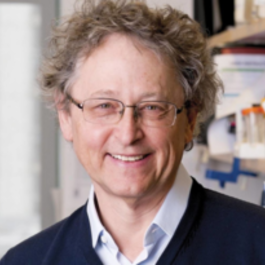
Immunology, Inflammation
Rockefeller University
Harrington Award for Coronavirus
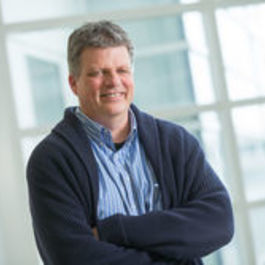
Respiratory
University Hospitals - Cleveland
Harrington Award for Coronavirus
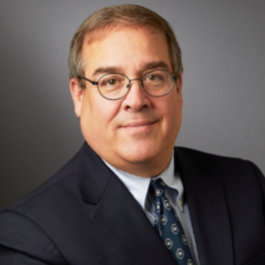
Infectious Disease, Virology
Yale University
Harrington Award for Coronavirus